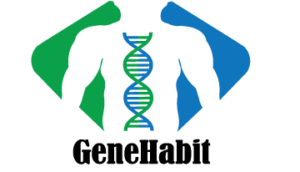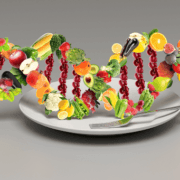Tag Archive for: lifestyle
Genetic Testing: Your Genetic Partner for Weight Loss
Weight Loss & Obesity: It’s all about understanding your genetics, diet, and Lifestyle!!
For many of us, weight loss can be a difficult task. It has become more challenging with COVID lockdown.
What causes weight gain/obesity?
- Overeating
- Sedentary lifestyle
- Family genetics
- Hormonal malfunction
- Excess sugar consumption
One of the most common misconceptions about weight loss is that one can just “go on a diet” and “exercise.” It turns out every individual has different requirements for their own body based on their genetic makeup, and a general random diet and exercise regimen won’t procure desired weight loss results and weight maintenance. Genetic testing can help to gain insight into- how to customize your diet and exercise based upon knowledge about how effectively your body can burn fat.
Impact of DNA testing on weight loss
Weight loss is difficult for many people, and it can be hard for one person to find a diet and exercise that meets their needs. Generic diets and exercise plans are not personalized to the individual’s needs, making weight loss difficult. Genetic testing can identify the risk for obesity and help in weight loss. Useful data can be obtained from genetic testing, such as determining the best kind of diet and the optimal exercise routine.
Based on your genetic test, you can personalize your lifestyle and food choices and get recommendations to be healthy. Generic diets and exercise patterns won’t help much to lose weight, but your DNA tells you how to do it. Genetic tests analyze over 80 parameters; related to health, fitness, nutrition, and habits.
A DNA test reveals your tendencies to gain weight, fat deposition risk, and high BMI risk that may affect your weight and overall health. With a genetic test, you can:
- Know your genetic obesity risk
- Plan your food intake according to your body’s calorie needs
- Indulge in exercises that work for your weight loss
- Observe symptoms of diseases that you have a high risk for
- Modify your lifestyle to prevent the onset of those diseases
- Plan your preventive health check-ups for the prevention of these diseases
Additional perks of genetic testing:
Knowing personalized obesity risk score
A personalized obesity risk score is useful in determining an individual’s genetic predisposition to obesity and related traits.
Sedentary tendency
A sedentary lifestyle can lead to a variety of health risks, including obesity. Recent research has confirmed some of these risks are associated with leading a sedentary lifestyle can contribute to obesity and hyper cholesterol.
Genetic testing can help you understand how your genes could increase your risk of having a sedentary lifestyle.
A personal approach to nutrition improves energy and protein levels, helps with functional status and quality of life, and helps to maintain an ideal weight.
DNA tests can provide you with diet-based insights. Your genetic makeup might indicate that a particular type of diet will help you lose weight or maintain weight.
Through genetic testing, your DNA profile can be combined with environmental and lifestyle factors, to identify the most effective physical activity to lose weight.
Stress and Sleep Recommendations
Lack of sleep or disturbed sleep, and stress can cause weight gain. Genetic testing identifies which gene markers help keep you healthy by providing insights into your circadian patterns, caffeine intake, and exercise habits.
GeneFIT – For Weight Loss Management With Personalized Reports
GeneFIT uses scientific insights about your genes to identify your risk of being overweight or obese. Your personalized report provides details about your genes that put you at risk and steps you could take to mitigate risk.
Report Includes:
- Gene markers that could result in access weight gain
- BMI Risk Score: Your risk of access or underweight
- Foods to avoid
- Recommended Diet type
For more details click here or connect with our experts
How Genetic Test Report Beneficial for Lifetime?
You can use your genetic test to take control of your weight. You can contact your gym trainer to plan exercises that will maximize the weight you lose. You can also contact your doctor and dietician to plan the future health and nutrition that will help you maintain your current weight.
Here are some of our other products with links –
NutriFit – NutriFit DNA test identifies your essential nutritional demands based on your genetic reports. NutriFit DNA test report gives you a detailed insight into your food sensitivities, food allergies, taste perception, and nutritional intake required for you. A personalized DNA-based diet recommended by nutritionists is based on your report to maximize your health benefits. Click here to read more about NutriFit test or connect with our experts
FitLife – FitLife DNA test gives you a holistic report about your fitness. The personalized report gives you an insight into the optimal type of exercise, aerobic capacity, and injury risk for you. Achieve your desired fitness through DNA based nutrition and fitness program to transform your fitness routine. Click here to read more about the FitLife test or connect with our experts
Nutrigenomics: Your Key To Fitness & Well Being
Nutrigenomics is the study of; the relationship between genomics, nutrition, and health. Nutrigenomics provides the understanding of the body’s response to micro and macronutrients as well as the relationship between genes and nutrients.
Why Is Nutrigenomics Popular Nowadays?
DNA tells a lot about who you are. It’s like a blueprint of your body. DNA testing can let you know how your nutrition needs to be adjusted for the perfect weight.
Nutrigenomic tests help you discover your unique nutrigenetic profile. But with an in-depth selection of personalized insights. It helps you to discover how to build your perfect meal; with recommended diet type and your carbohydrate & fat response take control of your long-term health with personalized nutrient recommendations.
Some genetic factors can also disrupt your body’s ability to absorb the vitamin. For example, certain gene variations can affect how well your body can use vitamin B12.
How does Nutrigenomic benefit your health?
Nutrigenomic helps us in:
(1) A better understanding of vitamins and mineral deficiencies.
(2) Prevention of certain diet-associated such intolerances.
(3) Avoiding unhealthy food that is regularly used but might have a bad effect on a particular individual’s health.
(4) Prevention of diseases and an increase in life expectancy.
(5) Nutrigenomics also provides a sneak peek at the reasons why you are not able to lose weight even after dieting and exercising regularly.
DNA Test to Identify Your Diet and Nutritional Needs
DNA-based diet and nutrition tests can provide you with information about your dietary needs. A diet that is right for you takes into account your genetic tendencies. A correct diet will help you achieve your health goals more efficiently and quickly.
DNA testing can help you provide information on the below factors:
- Vitamin and Mineral deficiencies- Calcium, Iron, Vitamin A, Vitamin B, and more.

Genetic insights to help you understand which nutrients, vitamins & minerals; are not optimally processed by your body and how you could fix these issues with the help of personalized nutrition recommended by your doctor or dietician.
Genetics plays a vital role in how your body absorbs vitamins into a usable form. For example- gene variation in the BCMO1 gene impacts the absorption of Vitamin A by changing its protein structure, resulting in disruption of fat metabolism and causing weight gain.
Similarly, mineral deficiencies are also regulated by genetic variations. That results in slow body metabolism such as fat breakdown and insulin resistance. For example, insufficient magnesium in the body has been linked to insulin resistance, which can cause weight gain and type 2 diabetes.
- Food Intolerances

Some people are genetically predisposed to food allergies or sensitivity suggested by several studies.
For example, if one family member has lactose intolerance, other individuals in the family may have that same lactose sensitivity. It is important to note that family members with the same food sensitivity may share a genetic predisposition that contributes to the development of food sensitivities. By taking a DNA test, you can know your body’s sensitivity to foods and how your genetic predisposition impacts your ability to digest certain foods like Carbohydrates, Lactose, Caffeine, and Gluten.
- Body Mass Index (BMI)

People with overweight and obesity appear more likely to have low micronutrient (Vitamin & Minerals) levels compared with people with weights falling within the “normal” body mass index (BMI) range. It has caused some to suggest that low Vitamin & Mineral levels cause weight gain.
If you are not getting all your vitamins and minerals, a slow metabolism will also contribute to progressive unwanted weight gain or high body mass index (BMI).
Genetic variation in vitamins and minerals also affects fat metabolism. Genetic testing can tell you if you’re missing a vital nutrient to help you lose weight so that you can maintain your ideal body weight.
- Taste Perception

People have different tastes and preferences when it comes to food. Taste is a pretty significant factor in what we choose to eat. Tastes are also known as “nutritional gatekeepers”. Evolutionarily, we developed taste receptors genes to detect sweet, savoury, and bitter flavors. Variations in these genes can cause people to perceive these tastes differently.
For example, it is been observed that obese individuals had more inclination toward fatty foods and had strong fat taste perception.
DNA tests give you a window into your taste buds, what they like, what they don’t, and why. They also help you learn about the nutritional content of food as well as any weight gain that may be due to an unhealthy preference.
How do DNA-based Diet and Genetic Testing Work?
A DNA test can be performed by taking a saliva sample. Saliva is an easy, non-invasive means of collecting a sample, and it contains enough DNA to generate a good genetic report. When you get your genetic reports, consult with a certified nutritionist, you can plan your diet accordingly and start seeing results.
A nutritional DNA test and consultation with a doctor or dietician can help you manage your fitness goals. These plans are created to prevent food sensitivities, keep your body weight in check, maintain a healthy weight, and prevent various food-related illnesses.
Genehabit’s Nutrifit Test for DNA-based Diet and Personalized Nutrition gives detailed and personalized genetic reports about your taste perception, food intolerance, micronutrient deficiencies, etc. Click here to read more about NutriFit Test or connect to our expert.
Have a look at our products with consent links:
GeneFit provides a 360 degree personalized genetic insight about the risk associated with your lifestyle and fitness – extreme weight gain or loss, nutritional deficiencies, food sensitivities, optimal physical activities, sleep, and stress. Click here to read more about the GeneFit test or connect with our experts
NutriFit DNA test identifies your micronutrient demands based on your genetic reports. NutriFit DNA test report provides you with an insight into your food sensitivities, food allergies, taste perception, and nutritional intake required for you. A personalized DNA-based diet is given considering your report to maximize your health benefits. Click here to read more about the NutriFit test or connect with our experts
6 Reasons You’re Not Losing Weight – Understand Genetics, Diet, & Lifestyle
It’s all about understanding your Genetics, Diet, and Lifestyle!!
Are you unsatisfied with your body weight or unable to shred weight even after eating healthy and working out? It’s time to understand your body metabolism and genetics as both play a major role in regulating our body weight.
Here are 6 possible reasons that might be hindering your weight loss:
- Your genes may be the reason for your slow weight loss.Studies suggest that your genes contribute to 40-70% of obesity; scientists have found more than 50 genes that are strongly associated with obesity or fat deposition. An individual with variants of these genes is at high genetic risk of obesity or access to weight gain.It’s good to get your genetic testing done to detect any obesity risk or fat-causing genes. This will help you to customize your diet and exercise to lead a healthy life.
- You’re following a diet that doesn’t meet your body or genetic makeupOften diet plans are a bit of a hit and trial to see which diet helps to reduce weight. One size fits all approach does not help your weight loss goals as each individual has a unique genetic profile. Gene variations determine the optimal type of diet for an individual. Some individuals would benefit from a high protein diet, some with low carbs and fats while others from a diet rich in healthy fats.You may not be aware but your taste preferences directly impact weight as it affects your like or dislike towards a particular food type. For example, people with strong sweet taste preferences consume more sweet stuff or desserts; this can cause weight gain and other metabolic disorders.As per studies your genes directly impact your taste buds so it’s good to know about your taste perception with GeneHabit DNA test to avoid obesity risk.Similarly, genes also regulate your food sensitivities at a large scale as proven in recent studies. People with lactose intolerance suffer bloating and other gut issues.

- Are you working out in the right way?Have you noticed that some people’s body responds to the exercise and workout plan effortlessly, while others try so hard for months at the gym and do not see any results?Your sedentary lifestyle is one of the major hurdles for your inability to lose weight, especially during this pandemic. Apart from lifestyle your genes also affect your sedentary behavior or exercise aversion that leads you to obesity.People with certain genes lose more weight to a specific type of exercise. You might not be doing the right exercise that is optimal for weight loss.For example; some people lose more weight with endurance exercise whereas some other individuals can shred his/her weight with aerobic exercise. We will help you to understand what exercise type would suit you depending upon your genes for weight loss.
This bowls down to fact that the genetic risk of obesity can be mitigated by leading a healthier lifestyle. Research shows that regular exercise, healthy eating, and certain lifestyle changes can deactivate the genes that make you put on weight.

- You may not be meeting your essential nutrient requirements.Essential nutrients play key roles in our body’s metabolism. If you aren’t getting all your vitamins and minerals, a slow metabolism will also contribute to progressive unwanted weight gain.Your genes play a major role in influencing macronutrient deficiencies as discovered in the latest studies. For example; Vitamin C deficiency is regulated by a genetic change in the BCMO1 gene under which your body is unable to covert Vitamin C into a usable form. Thus slowing down fat metabolism leading to obesityKeep your nutrient deficiencies in check with the GeneHabit DNA test and personalized recommendations.

- You’ve hit a weight loss plateauPeople with a strong genetic predisposition to obesity may not be able to lose weight with the usual forms of diet and exercise therapy. Hence you need to keep a track of your diet and exercise to break this weight plateau.Performing exercise, especially strength training, can help offset the drop in metabolic rate that occurs during weight loss. Endurance, Power, Strength, or Moderate exercise suits you.Tracking your calorie and macronutrient intakes can provide accountability and help in breaking the weight plateau.The increased cortisol production that’s associated with stress can interfere with weight loss. Stress-reduction strategies may help promote weight loss.
- Keep a check on your sleep durationSleeping for more than 9 hours and less than 7 hours can impact your food cravings and midnight snacking at odd hours leads you to risk of obesity and makes it difficult for you to lose weight.Researchers have identified specific genes that trigger the development of sleep problems, disturbed circadian rhythms and have also demonstrated a genetic link between insomnia and weight gain.Your caffeine intake also influences your sleep. Your genes play a major role in caffeine metabolism. So if you are a slow metabolizer intake of caffeine post evening impacts your sleep which directly impacts your weight.
- Your mental health and working environment impact your weight directly!We all live in high-stress situations. You may not know or observe but stress affects your body weight by leading you into stress eating, binge eating, and eating comfort food habits. Thus it makes a herculean task for you to lose weight.Stress is not only a lifestyle-related factor but our genes also play a prominent role in how we react to stressful events in life. You must have seen few people cope with work pressure easily where other individuals crumble down emotionally this is decided by the action of your neural genes.Stress is not avoidable but manageable with GeneHabit DNA test and a healthy lifestyle.

How Genetic testing can determine the genetic risk of obesity or weight issues?
Understanding your genetic profile and susceptibility to weight gain can provide long-term health benefits.
GeneHabit enables you to influence your BMI and blood lipids by regulating your dietary intake and your physical activity.
We will encourage you to manage your diet and increase your exercise to control your weight.
At Genehabit we have developed a personalized genetic test to let you know about your genetic obesity risk with personalized recommendations for more details visit our products,
- GeneFit – GeneFit provides a 360 degree personalized genetic insight about your lifestyle and fitness risks that include – the risk of extreme weight gain or loss, nutritional deficiencies, food sensitivities, optimal physical activities, sleep, and stress. Click here to read more about the GeneFit test.
- NutriLife – NutriLife DNA test identifies your nutritional requirements of vitamins and minerals based on your genetic profile. NutriLife DNA test report provides personalized recommendations for nutrient intake by including recommended food sources in your diet. Your food allergies or sensitivities along with taste perception are also identified to maximize health benefits. Click here to read more about NutriLife test.
- FitLife – FitLife DNA test identifies your fitness attributes – the optimal type of exercise, aerobic capacity, and injury risk for you to achieve desired fitness level. Discover genetic insights in your DNA that can transform your choice of workouts and training for optimal fitness. Click here to read more about the FitLife test.
- HairLife – HairLife DNA test identifies your risk of premature hair loss, greying, and thinning due to genetic factors, nutritional deficiencies, and stress. HairLife DNA test identifies the specific type of hair issues that you are suitable for and recommends preventive action to keep your hair healthy and nourished. Your personalized DNA report provides recommendations for hairstyles, nutrition recommended supplements, and hair care products. Click here to read more about the HairLife test.
- SkinLife – SkinLife DNA test provides comprehensive, personalized genetic insights into your skin type and your risk of premature aging, sun damage, allergies, and more. Click here to read more about SkinLife test.
For your queries and questions visit our FAQ section, or contact our experts for personalized plans and recommendations.











